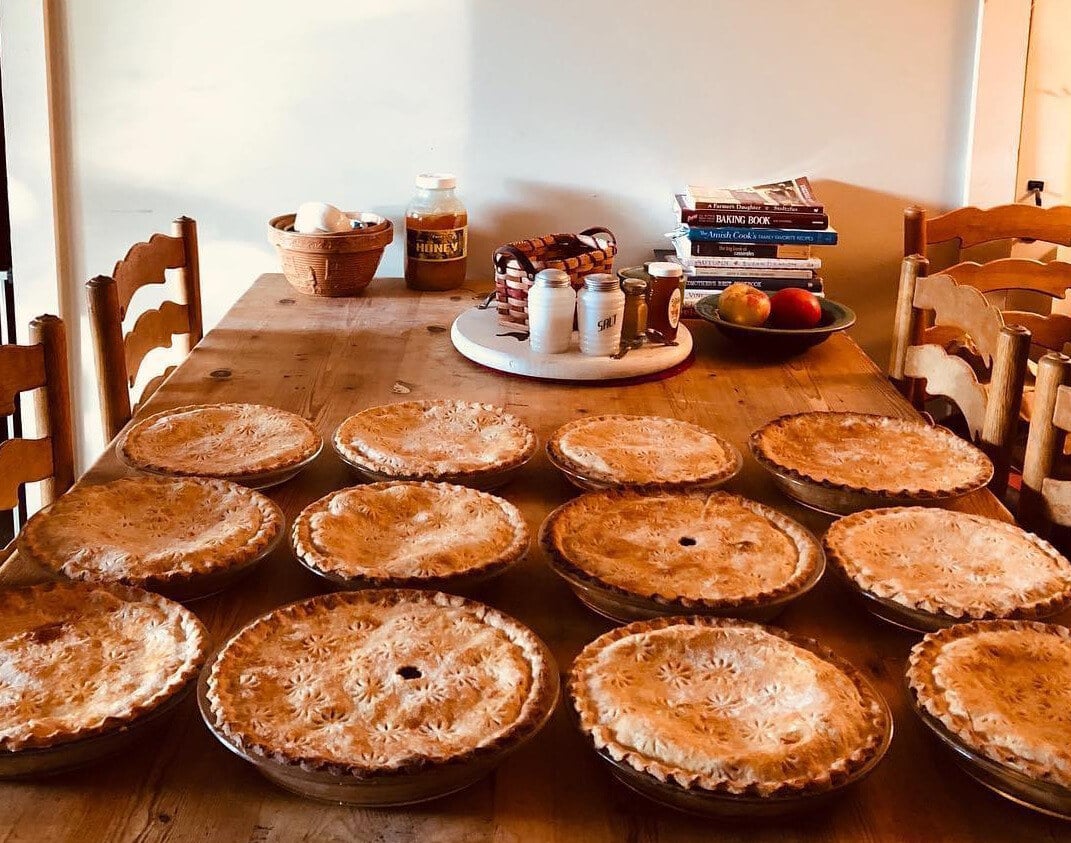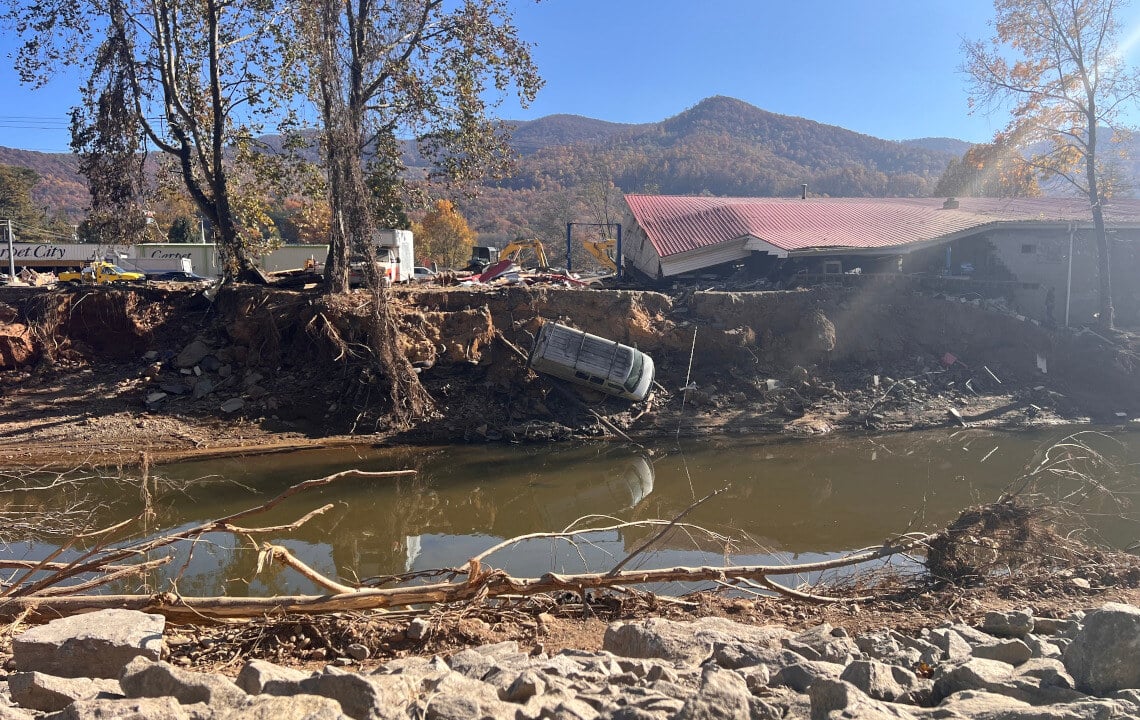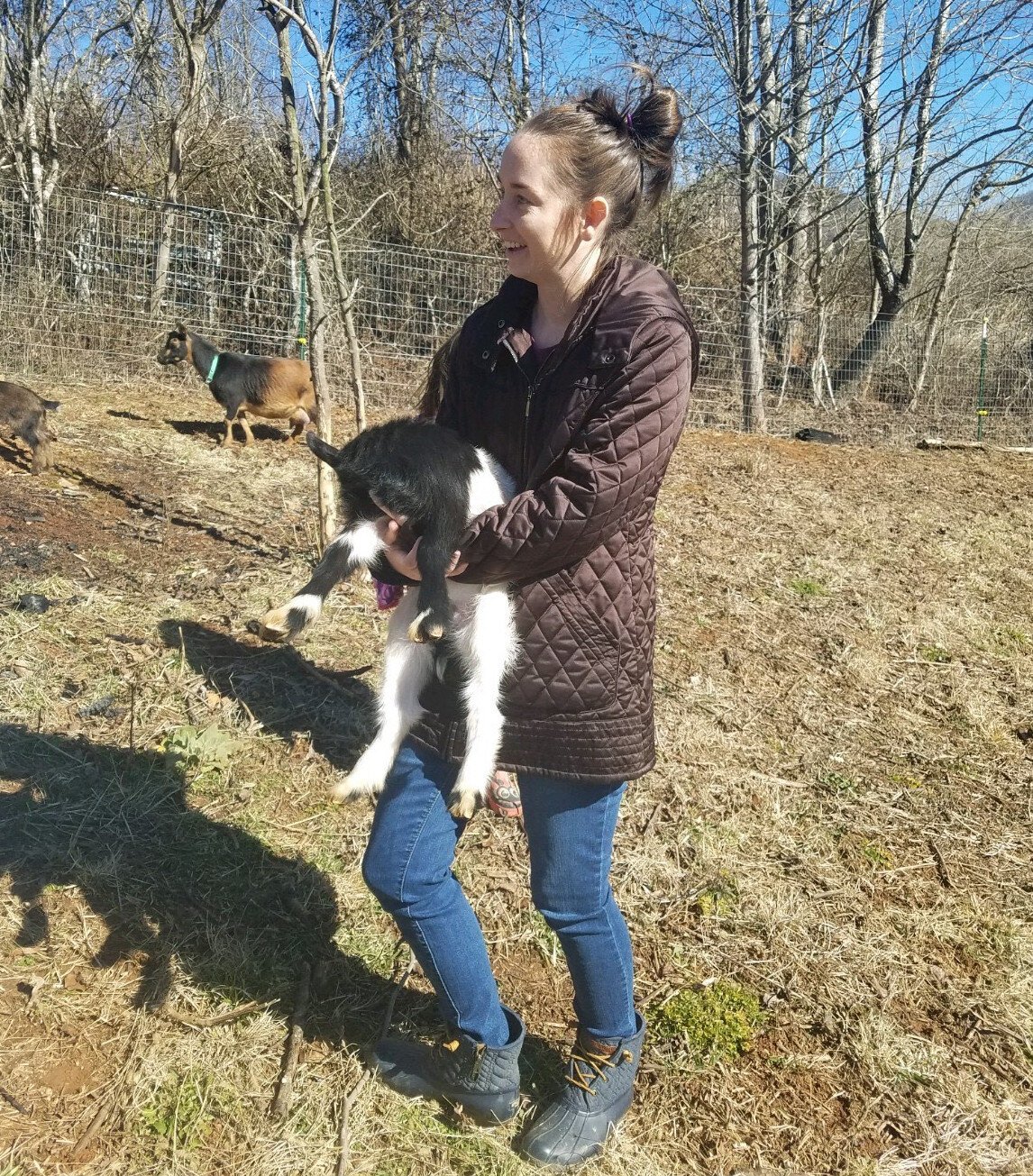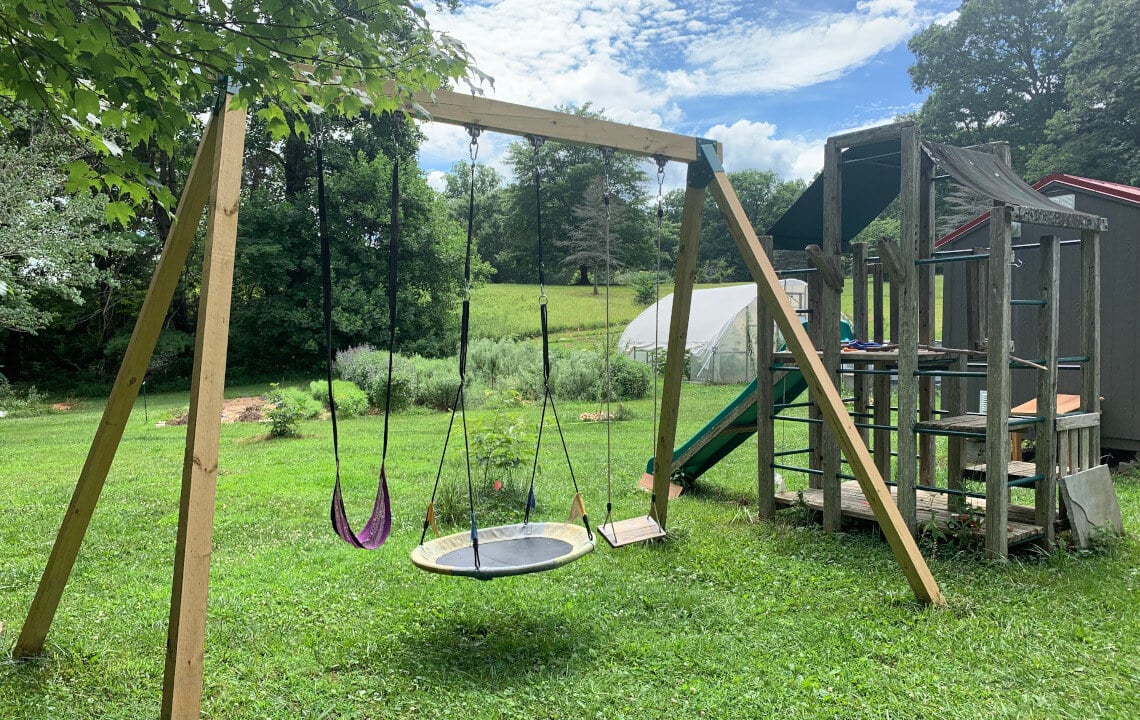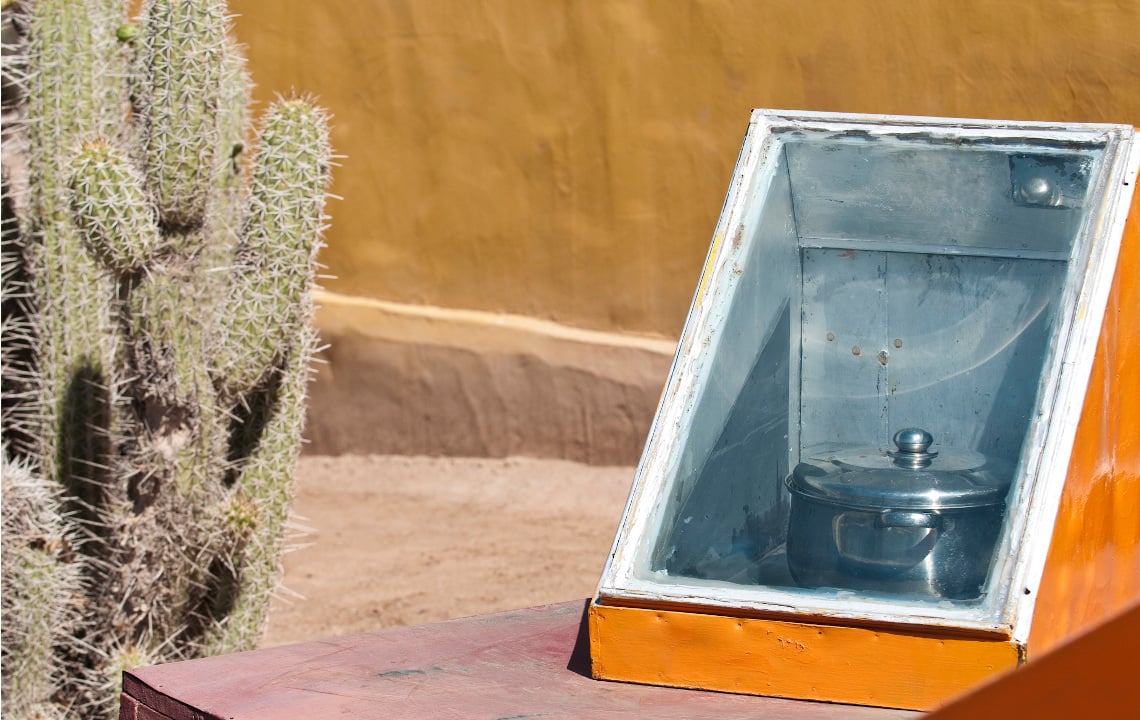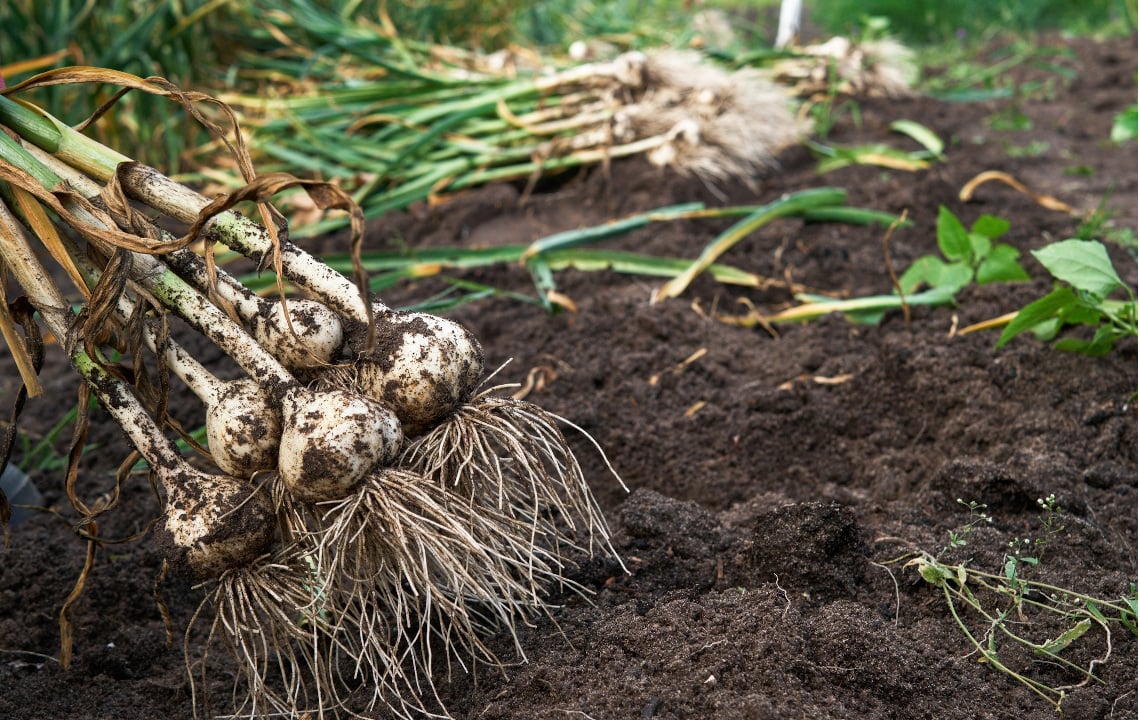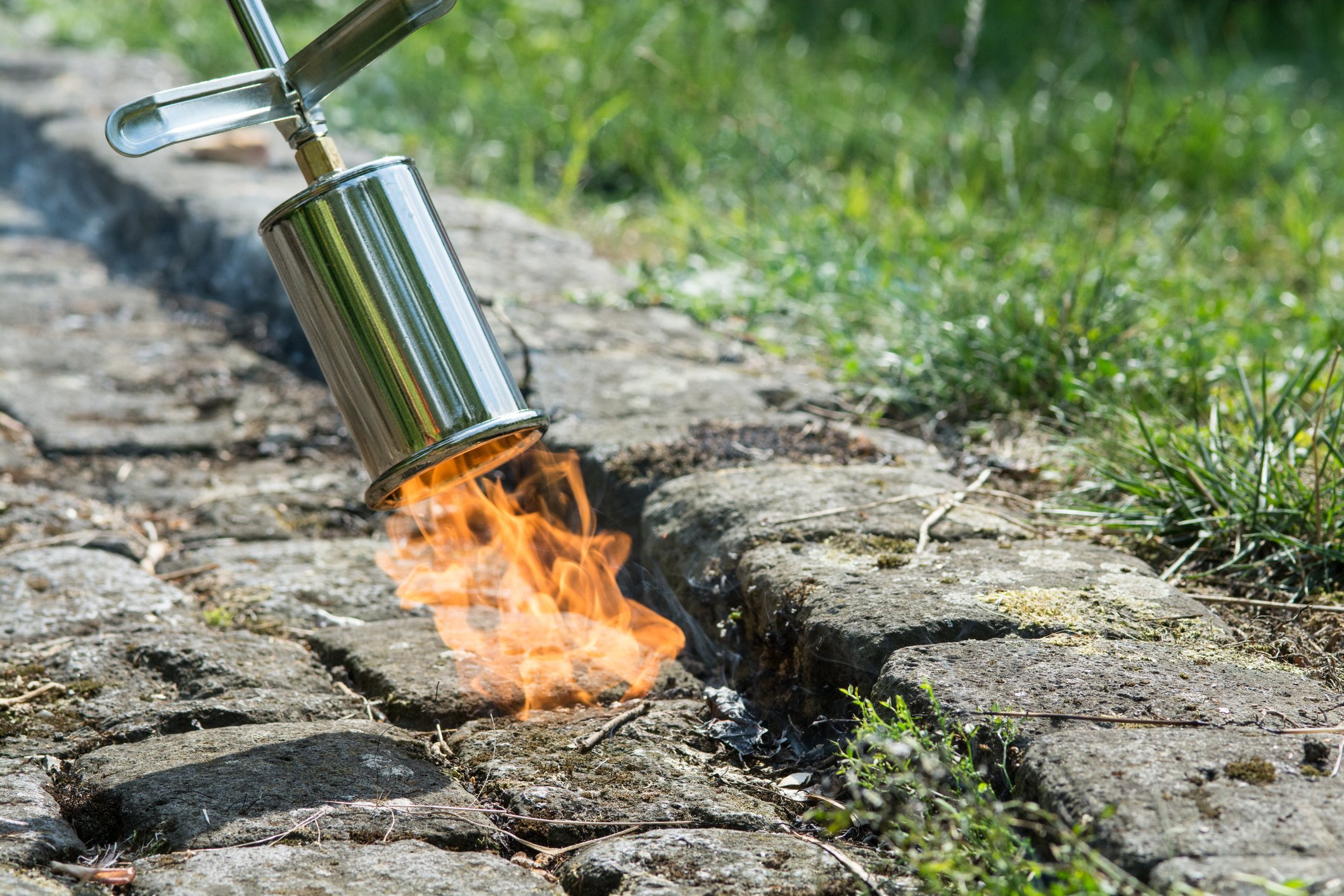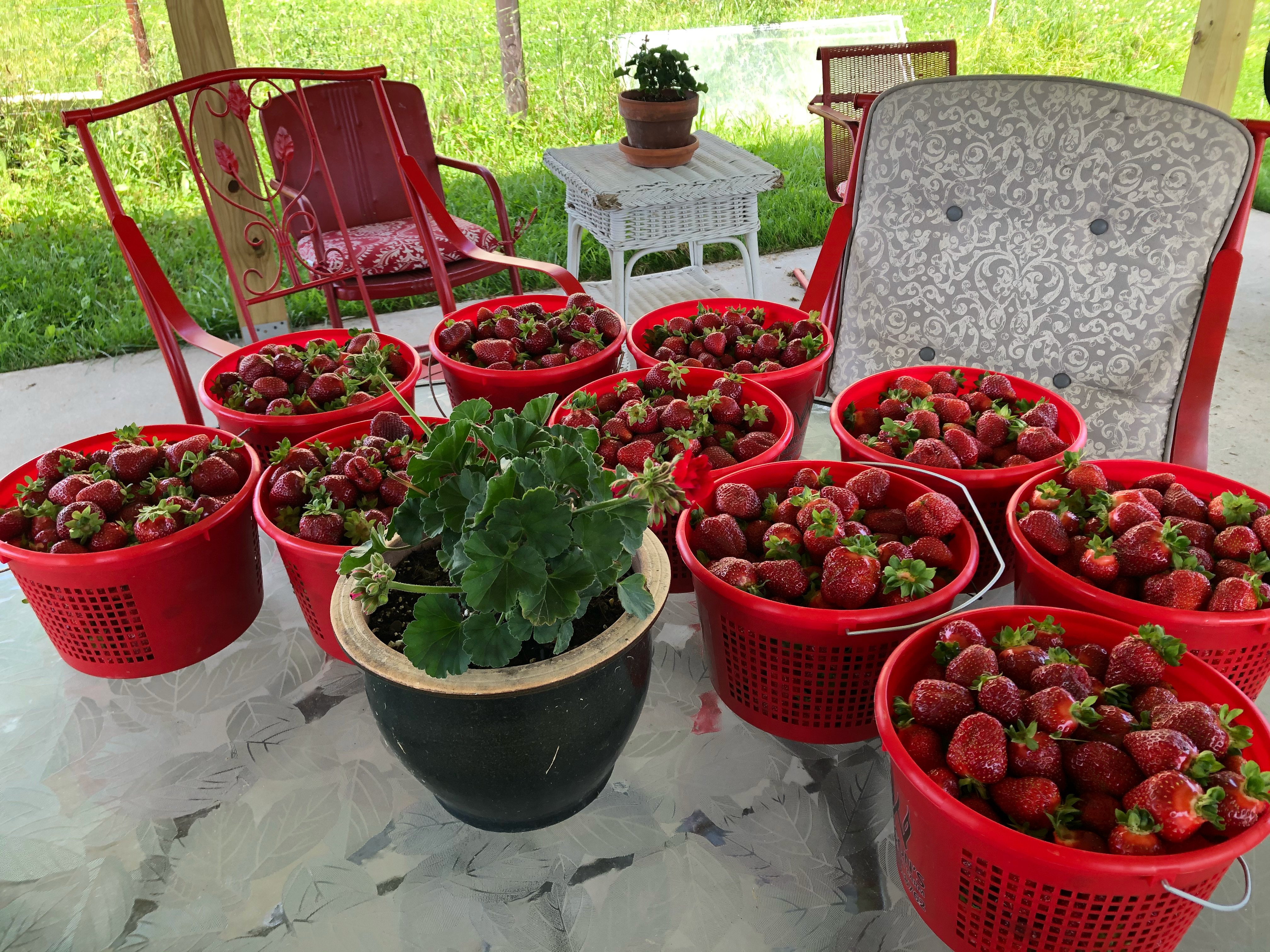A homesteader, bulk buyer, mom and chef shares how to choose the best deep freezer (including chest freezer versus upright) for your home, hobby farm or homestead.
Deep freezers are a must-have for homesteaders, hobby farmers, hunters, foragers, bulk buyers and/or local food enthusiasts.
I know because I currently own three freezers: two attached to refrigerators and one chest freezer (and yes, I plan on buying another one soon).
However, if you’ve never bought a deep freezer, you probably have some questions. The most glaring being: should I spring for an upright freezer or is a chest freezer a better buy?
In this article, you’ll learn everything you need to know about choosing the best freezer(s) for your homestead, including:
- Unique freezer considerations for homesteaders, hobby farmers, ranchers, bulk buyers and hunters
- Chest freezer vs. upright: The pros and cons for homesteaders, hobby farmers, etc.
- How to determine the right freezer size for your family
- What about used freezers?
- The best freezer for off-grid living
- Organization tips
- And more
Whether you’re looking for a fast way to preserve home-grown vegetables and meats or need extra space for your latest cow-share, price club or co-op haul, having the right deep freezer will change your life for the better.
Unique freezer consideration for homesteaders, hobby farmers, bulk buyers and hunters
Homesteaders, hobby farmers, hunters, bulk buyers and ranchers have different freezer space needs than other people.
Generally, we need a lot of extra space to store surplus food, especially during peak seasons such as gardening and hunting.

We may also need extra space for raw pet food, processing farm products, freezing fresh ground flour, freezing homemade loaves or bread or freezing bulk dry items, like grains, nuts, seeds and legumes, prior to storage to prevent weevil or pantry moth infestations (yep, this can be a reality of buying any grain or bean, especially in bulk).
Some homesteaders live off-grid, which makes energy consumption a significant consideration.
Plus, those living on large acreage in the middle of nowhere may experience more power outages or more extended outages than those who live closer to cities and towns.
We just lived through Hurricane Helene here in Western North Carolina, and our power was out for nearly two weeks.
The following tips and advice will factor all these criteria and help you make the best choice for your homestead.
Chest Freezer vs. Upright: The Pros and Cons for Homesteaders & Hobby Farmers
I used to think I wanted an upright freezer more than anything.
After all, they seem so much easier to organize and take up less space than my chest freezer.
However, as I started researching, I learned they also have less storage space, are more prone to imparting freezer burn, and don’t stay as cold during a power outage.
Does that mean an upright freezer is useless for homesteaders and the like? No, it depends on your needs, space, location, how fast you use frozen food and organizational skills.
Let’s look at some of the pros and cons of chest freezers vs. upright freezers for homesteaders and the like.
Pros and Cons of Chest Freezers At-A-Glance
Pros: Cons:
|
They typically have about 20% more storage space. |
They take up more floor space. |
|
They keep food colder longer in a power outage. |
They’re more difficult to organize. |
|
They come in more size capacities. |
Finding your food in a chest freezer can be hard, which can result in spoilage. |
|
They circulate less air, which results in less freezer burn. |
They don’t come in a variety of finishes. Usually just white |
|
They’re usually quieter than uprights. |
They may require a lock if you don’t want children climbing in. |
|
They generally use less electricity than an upright (but not always), which may make them a better option for off-gridders. |
They do not self-defrost, which can be a pro or a con. |
The most significant pros of chest freezers for homesteaders, hobby farmers, etc., is their larger capacity (especially if you need to store garden produce, meat, bulk items, etc.) and their ability to keep food colder longer during a power outage.
The biggest cons may be the footprint, the greater need for tight organizational systems and the need for manual defrosting, which can take a lot of time.

In addition, if you practice freezing your bulk items before storage to kill off any potential bugs/pantry moths, a chest freezer generally has better capacity for large sacks of grains, beans, etc.
As herb farmers, we prefer the width and depth of a chest freezer to help process large amounts of certain herbs, like elderberries, before drying.
Pros and Cons of Upright Freezers At-A-Glance:
Pros: Cons:
|
They are easier to organize with various shelves and baskets, which can prevent food spoilage. |
Temperature may not be as consistent as a chest freezer. |
|
They come in a variety of finishes, such as stainless steel, white, black, etc. |
They don’t stay as cold as a chest freezer during power outages. |
|
They self-defrost, which can save time. |
The self-defrost function also means they circulate more air, which can cause freezer burn. |
|
They take up less room than a chest freezer. |
They tend to be noisier than a chest freezer. |
|
They generally use more electricity than a chest freezer, which may be a deal-breaker for off-gridders. |
They’re usually more expensive than chest freezers. |
Overall, upright freezers’ biggest benefits for homesteaders, hobby farmers, etc., are that they take up less space and are easier to organize.
Secondary benefits may be the choice of finishes (especially if it’s displayed in a prominent location) and self-defrost function, which can save time when you have a million other things to do.
The biggest cons are the greater risk of freezer burn, which is most significant if you keep frozen food longer than six months, the lack of depth and length for freezing bulk or oversized items and the fact they won’t stay as cold as a chest freezer during blackouts.
As much as I love the idea of a more organized upright freezer, the pros of a chest freezer outweigh the cons for us.
Your circumstances and personal preferences will determine the best product for you.
How To Determine The Right Size Freezer For Your Family
Chest and upright freezers are generally available in four size ranges:
- 5 cubic feet and under (compact)
- 5 to 9 cubic feet (small)
- 12 to 18 cubic feet (medium)
- 18 cubic feet (large)
So, what size is right for you? It depends.
If you Google “What size freezer should I buy,” you’ll see many articles recommending you multiply the number of family members in your home by 2.5 cubic feet to determine the optimal size.
Although this is a good starting point for the average urban or suburban family, it’s not necessarily applicable for people producing their own food, bulk buyers, hunters, anglers, cow-poolers or home food preservation enthusiasts.
When in doubt, go bigger!
It will cost more upfront, but it allows you to expand your food production (and family) without buying another unit.
However, don’t go so big that you can’t keep the freezer about three-quarters full, which will help improve energy efficiency.
If you require more than 18 cubic feet, you should consider industrial-size walk-in freezers.
What About Buying A Used Deep Freezer or Upright?

Buying a used deep freezer or upright can be a great way to save money, provided the unit is fully functional and the price is right.
If you’re buying from a friend or someone you trust, ask if you can see the unit in action and check the temperature with a thermometer.
If you’re buying from MarketPlace, Craig’s List, etc., ask them to send a video of the freezer in action or if they have a guarantee (better safe than sorry).
Generally used appliances aren’t warrantied, but you may get lucky if it’s a fairly new item.
Buying something used is always a gamble, but it can be worth it for the right price.
The Best Freezer For Off-Grid Living
The best freezer for off-gridders typically uses the least power and provides the most space.
Usually, this means a small chest freezer, but the size really depends on your power setup and capacity.
The best way to determine this is to check the Energy Start ratings on various freezers. Also, keep in mind that newer freezers (versus used models) typically have better energy efficiency.
In addition, where you store your freezer really counts, so make sure you store it in a cool place, like a basement, rather than a hot place, like a barn or garage, so it doesn’t have to work harder to maintain temperature.
This article from Pure Living For Life has some helpful tips from off-gridders.
Deep Freezer Organization Tips
Again, an upright freezer makes the organization process so much easier.
However, with a little extra planning and labeling, you can also keep your chest freezer organized and waste-free.
Here are some helpful commonsense tips:
- Label and date everything with waterproof labels and permanent markers.
- Add plastic and wire bins to a deep freezer and organize by category. These bins are available online, are stackable and can make a world of difference to space and sanity! You can find lots of inspiration on Pinterest.
- Label and stagger your bins to make things even easier.
- Keep the most perishable items at the bottom of your chest freezer, where it’s the coolest.
- BUT also keep frequently used items in accessible locations.
- If you have an upright freezer, keep the most perishable items off the door racks, which lose heat the fastest.
- Keep a running inventory sheet on the freezer door/lid, and check off what you use up.
- To optimize space, try to flash-freeze things as flat as possible, like pizza crusts or tortillas.
- Use a vacuum sealer as a space-saver for bagged items. As a bonus, vacuum-sealed foods last longer.
Freezer Maintenance
Maintaining your freezer by cleaning it out twice a year is also important. If it requires manual defrosting, do this at least once a year or when you see ice build up on the sides.
Check the gaskets regularly, as any rips or tears can cause cold air to escape, and check the temperature regularly to ensure proper and safe function.
Finally, try to keep your deep freezer about three-quarters full, as this will help maintain the temperature.
Let's Recap
Buying a freezer is an exciting step in your journey to greater self-sufficiency and home food preservation.
The best freezer for you and your homestead depends on how much food you plan to freeze, your space, your budget and any special considerations such as power outages or reliance on alternative energy.
Generally, it’s better to go bigger and grow into your freezer than not have enough space, but again, that’s an individual choice.
For more information on food preservation, check out the following articles:







